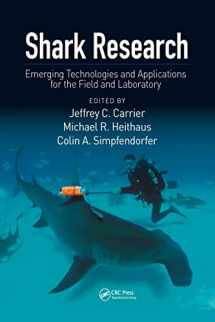
Shark Research: Emerging Technologies and Applications for the Field and Laboratory (CRC Marine Biology Series)
Book details
Summary
Description
Over the last decade, the study of shark biology has benefited from the development, refinement, and rapid expansion of novel techniques and advances in technology. These have given new insight into the fields of shark genetics, feeding, foraging, bioenergetics, imaging, age and growth, movement, migration, habitat preference, and habitat use. This pioneering book, written by experts in shark biology, examines technologies such as autonomous vehicle tracking, underwater video approaches, molecular genetics techniques, and accelerometry, among many others. Each detailed chapter offers new insights and promises for future studies of elasmobranch biology, provides an overview of appropriate uses of each technique, and can be readily extended to other aquatic fish and marine mammals and reptiles.
Including chapter authors who were pioneers in developing some of the technologies discussed in the book, this book serves as the first single-source reference with in-depth coverage of techniques appropriate for the laboratory and field study of sharks, skates, and rays. It concludes with a unique section on Citizen Science and its application to studies of shark biology.
This is a must-read for any marine biologist or scientist working in the field of shark biology, as well as marine biology students and graduates.


We would LOVE it if you could help us and other readers by reviewing the book
Book review



